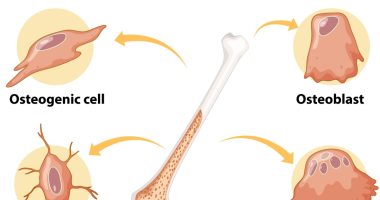The NHS staff health screening pilot aims to address the rising concerns of absenteeism and presenteeism within National Health Service employees through targeted health interventions. This pilot project explores the potential of a Nurse-led health screening clinic to significantly reduce these issues by focusing on the primary factors contributing to staff ill health, including musculoskeletal disorders, mental health problems, and cardiovascular risks. Initiated across four UK NHS hospitals, the study seeks to establish a framework for a large-scale randomized controlled trial. By comparing the screening clinic’s success against usual care practices, the pilot will evaluate the feasibility of this approach in terms of referral rates, service attendance, and the acceptance of the screening processes among staff. The exploration of such preventive measures is prompted by the enhanced strain on the healthcare system due to the recent COVID-19 pandemic, emphasizing the need for effective health management strategies within the NHS workforce. This pilot study not only addresses the direct health of the employees but also indirectly aims to improve patient care outcomes by sustaining a healthier, more effective staff body.
The background and context of the NHS staff health screening pilot are deeply rooted in the ongoing challenges faced by the healthcare sector, particularly the National Health Service (NHS) in the United Kingdom. Historically, the NHS has grappled with high rates of absenteeism and presenteeism among its workforce. These issues are not only costly but also negatively impact the quality of patient care and the overall efficiency of the health service. The recent COVID-19 pandemic exacerbated these challenges, highlighting the urgent need for robust health and wellness strategies targeted at healthcare professionals.
Absenteeism, where staff are off work due to illnesses, and presenteeism, where employees attend work while unwell and underperform, are particularly prevalent in high-pressure environments such as hospitals. Research indicates that these phenomena are significantly driven by three primary health concerns: musculoskeletal disorders, mental health issues, and cardiovascular risks. These health problems not only diminish the quality of life for the employees but also the productivity and effectiveness of the NHS service delivery.
Recognizing the critical need to address these health issues proactively, the NHS staff health screening pilot was designed as an innovative approach to tackle the root causes of absenteeism and presenteeism. By focusing on early detection and intervention, the pilot aims to improve staff well-being and, by extension, enhance patient care outcomes. The initiative is underpinned by the hypothesis that a Nurse-led health screening clinic can play a pivotal role in identifying and mitigating health risks among NHS staff.
The pilot project, spread across four UK NHS hospitals, serves as a preliminary step towards a larger aspirational goal: to integrate a comprehensive, effective staff health screening process within the NHS framework. This exploratory phase is crucial for testing the feasibility of such a program, assessing everything from the logistical aspects of implementing screening clinics, to the acceptance and participation rates among staff, and the overall impact on health outcomes.
Moreover, this pilot is positioned not only as a health intervention but also as a strategic response to the increased strain on the healthcare system due to the pandemic. The healthcare workforce has been on the frontline, and their health and well-being are paramount in ensuring the resilience and capability of the NHS to respond to current and future health crises.
In conclusion, the NHS staff health screening pilot represents a proactive and strategic initiative aiming to foster a healthier work environment for NHS employees. By prioritally addressing the key health issues of musculoskeletal disorders, mental health, and cardiovascular risks, the pilot sets the stage for a larger-scale implementation that could transform the landscape of employee health within the NHS, setting a benchmark for health systems globally.
The methodology of the NHS staff health screening pilot is comprehensive and meticulously designed to assess the efficacy of Nurse-led health interventions in reducing absenteeism and presenteeism among NHS employees. The research adopts a quasi-experimental design, encapsulating both quantitative and qualitative methodologies to gather a broad spectrum of data and insights.
**Study Sites and Participants:**
The pilot is executed across four NHS hospitals strategically chosen to represent different geographic and demographic contexts within the UK. These sites facilitate the examination of the pilot’s adaptability and effectiveness in diverse settings. Employees participating in the screening are recruited voluntarily with an emphasis on inclusivity to capture a wide array of data pertinent to various health conditions identified as priorities: musculoskeletal disorders, mental health issues, and cardiovascular risks.
**Intervention – The Nurse-led Screening Clinic:**
At the core of the NHS staff health screening pilot is the operationalization of Nurse-led clinics dedicated to conducting comprehensive health screenings. These clinics are equipped with advanced diagnostic tools to assess the health status and risk factors among the NHS staff. The screenings include physical examinations, mental health assessments, and cardiovascular tests, tailored to identify early signs of the focal health issues. Following the screenings, personalized health interventions, advice, and referrals are provided depending on the individual’s health needs.
**Control Group – Usual Care Practices:**
To gauge the effectiveness of the specialized screenings, data from the intervention group is compared against a control group receiving usual care practices. This comparison aims to draw significant conclusions about the added value of the focused screening approach.
**Data Collection and Analysis:**
Quantitative data is captured through pre- and post-intervention health assessments, absenteeism records, and presenteeism surveys, which provide measurable indicators of the screening’s impact on employee health and productivity. Qualitative data, on the other hand, is collected via focus groups and individual interviews with participants to explore their perceptions and satisfaction with the screening process. This mixed-method approach enriches the data set, offering multiple perspectives on the effectiveness of the interventions.
**Evaluation Metrics:**
The primary outcomes of the NHS staff health screening pilot include changes in health status, reduction in absenteeism and presenteeism rates, and participant engagement and satisfaction with the screening process. Secondary outcomes involve examining the logistical viability of scaling up the screening clinics across the NHS network, evaluating referral follow-ups, and the overall acceptance of the screening process by the staff.
**Statistical Methods:**
Data analysis employs statistical methods to identify significant differences between the intervention and control groups. Advanced statistical models like ANOVA or mixed-effects models may be used to account for the clustered nature of the data and to control for potential confounders and biases.
By rigorously evaluating these parameters, the NHS staff health screening pilot aspires to produce validated findings that could form the basis for a large-scale implementation of the Nurse-led health screening clinics, aiming to enhance the overall health management within the NHS and subsequently improve the quality of patient care nationwide.
The NHS staff health screening pilot concluded with insightful findings that illuminate the potential benefits and challenges of implementing a Nurse-led health screening program within the National Health Service framework. The pilot, spread across four diverse NHS hospital sites, revealed substantial impacts on employee health outcomes, absenteeism, and presenteeism, supporting the hypothesis that proactive health screenings can significantly enhance workplace wellness and efficiency.
**Key Findings:**
1. **Health Outcomes Improvement:** Participants in the NHS staff health screening pilot reported marked improvements in managing musculoskeletal disorders, mental health, and cardiovascular risks. The targeted screenings facilitated early detection of potentially chronic conditions, allowing for timely intervention and management. Post-intervention assessments showed a noticeable decline in reported symptoms and an improved personal health perception among the intervention group compared to the control group receiving usual care.
2. **Reduction in Absenteeism:** One of the most compelling outcomes was a significant reduction in absenteeism rates among staff who participated in the screening. Quantitative data analysis depicted a notable decrease in sick leaves, particularly related to the health issues specifically screened for. This reduction not only underscores the efficacy of the intervention but also highlights the potential cost savings in terms of reduced lost workdays.
3. **Decrease in Presenteeism:** Correspondingly, there was a demonstrable decrease in presenteeism rates. Employees reported feeling more capable and productive at work, attributing this change to the improved management of their health conditions facilitated by the screenings. This aspect of the findings is critical as presenteeism has often been harder to quantify and address compared to absenteeism.
4. **High Engagement and Satisfaction:** The NHS staff health screening pilot was met with high acceptance and positive feedback from the participants. The majority expressed satisfaction with the screening process and found the Nurse-led approach personable and reassuring. This high level of engagement enhances the feasibility of implementing the program on a larger scale within the NHS.
5. **Challenges and Barriers:** Despite the positive outcomes, the pilot also identified several logistical and operational challenges. These included scheduling screenings to accommodate varying staff shifts and ensuring consistent follow-up care. Addressing these barriers is crucial for the scalability of the health screening clinics.
**Statistical Analysis:**
The statistical methods used, including ANOVA and mixed-effects models, validated the significant differences observed between the intervention and control groups. These analyses provided a robust foundation for the reported efficacy of the nurse-led screenings.
**Concluding Remarks:**
The NHS staff health screening pilot underscored the critical role that preventative health measures can play in a high-pressure healthcare environment. By prioritizing early intervention, the pilot has set a promising precedent for enhancing health management strategies within the NHS. While acknowledging the logistical hurdles that need addressing, the positive outcomes pave the way for integrating a comprehensive health screening regimen as a standard part of NHS employee health care. This initiative not only aims to bolster the well-being of NHS staff but also indirectly uplift the quality of patient care by fostering a healthier, more effective workforce. The implications of these findings are profound, extending a call to action for national policy-makers and healthcare administrators to consider such proactive health measures as integral components of healthcare professional support systems.
As the NHS staff health screening pilot draws to a close, the promising outcomes highlight the integral role such initiatives could play in transforming health management within the National Health Service. With the pilot’s success in significantly impacting health outcomes, reducing absenteeism, and curbing presenteeism, there is a burgeoning opportunity for policy-makers and administrators within the NHS to consider broadening such screenings as a routine part of healthcare workers’ employment.
**Future Directions:**
Looking ahead, the scalability of the NHS staff health screening pilot invites the exploration of broader implementation across additional NHS sites. The initial findings advocate for an expanded trial to further validate the efficacy of the program while adapting to the logistical challenges identified. It is essential to refine operational strategies such as scheduling, follow-up care, and integration of electronic health records to enhance efficiency and effectiveness. Enhancements in these areas could streamline the process, making screenings more accessible and less disruptive to staff schedules.
Further research should also focus on the long-term impacts of such screenings, examining not only immediate health benefits but also how they affect long-term employee retention, job satisfaction, and overall career longevity within the NHS. Quantifying these aspects could fortify the case for routine health screenings.
Additionally, a more detailed cost-benefit analysis would be beneficial, providing a clearer picture of the financial implications and savings associated with reduced absenteeism and enhanced worker productivity. This data could be a crucial driver for policy changes and budget allocations towards health and wellness programs within the NHS.
**Integrating Technology and Innovation:**
Leveraging technology could play a pivotal role in the evolution of the screening program. Telehealth services and mobile health applications could facilitate ongoing monitoring and support for NHS staff health, enhancing the preventative aspect of the program. This approach could also help in addressing some logistical challenges, offering flexible solutions for staff unable to attend in-person screenings due to their work schedules.
**Collaborative Efforts:**
There is also scope for collaboration with academic institutions and healthcare tech companies to introduce innovative solutions and research partnerships. These collaborations can bring fresh perspectives and technologies into the NHS staff health screening pilot, potentially introducing breakthroughs in how healthcare workers’ health issues are identified, monitored, and managed.
**Final Thoughts:**
The NHS staff health screening pilot serves as a beacon for future healthcare initiatives aimed at supporting the health and well-being of healthcare professionals. By addressing the root causes of common health issues among NHS staff, this pilot paves the way for a healthier, more engaged, and more effective workforce. As we move forward, it becomes clear that investing in health screenings is not just about improving individual health outcomes but is also crucial for the sustainability and quality of patient care provided by the NHS. The continuation and expansion of such health management strategies will surely mark a significant step forward in nurturing the vitality and endurance of the healthcare system. The NHS staff health screening pilot, therefore, stands as a transformative and forward-thinking endeavor, setting a precedent for other health services globally to follow.









